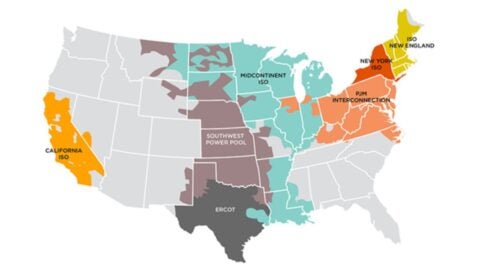The Jobs Bill: Transit Operations Funding Will Save Green Jobs
Yesterday, President Obama became the latest among a growing number of D.C. policy leaders to promise a jobs bill that includes transportation funding. While the day-to-day details of when a bill will emerge, how it will be funded, and what it will include are all still developing, a jobs bill seems more certain than ever.
This brings us to one place where we think jobs funding should be targeted: transit operations. A jobs bill that directs a one-time slug of cash to fund transit drivers and mechanics could save some important jobs.

These are jobs that ultimately help protect air quality and reduce greenhouse gases by providing people real choices in transportation.
Transit agencies across the U.S. are hurting. This past Saturday,dozens of San Francisco Muni riders were stranded at the station. In response to a $129 million budget deficit for fiscal year 2009-2010, the San Francisco Municipal Transportation Agency (SFMTA) cut more than half of Muni’s bus routes and one rail line. And while San Francisco has been hit the worst of any American city in terms of fare increases, and is second behind Atlanta’s MARTA in terms of projected deficit as a percentage of operating budget, transit cuts and lay offs are widespread and not confined to urban areas.
These transit service cuts and fare increases also impact transit employees. Transit operators and maintenance crews have lost their jobs. AC Transit, which serves California’s Alameda and Contra Costa Counties, has cut almost 190 bus driver and maintenance positions. In Colorado Springs, CO., state and local budget cuts have eliminated an entire bus service–and more jobs.
Over the years, the federal government has helped pay for buses and rail, but not the drivers and mechanics to keep those services operating. That funding responsibility is left to states and local governments. With the economic crisis, state and local budget cuts have hit transit operations hard. Federal help for operations in a jobs bill is sorely needed.
Transit operating jobs are exactly the kinds of jobs that a stimulus ought to fund—good jobs that provide hardworking men and women with a living wage while providing a needed public service. In San Francisco, Muni bus drivers earn between $36,000 and $58,000 per year, depending on seniority, and these drivers and their families rely on this income. A federal jobs bill that includes transit operations funding would immediately put drivers and maintenance staff back to work.
It’s not just driver jobs that are at stake. Transit is critical for riders who use it to get to work. The number of employed workers who need it is growing as gas prices and general cost of living increases. Since 1995, public transportation trends have done nothing but increase. In 2008, Americans took 10.7 billion public transportation trips, the highest number since 1956. In the same year, as transit ridership increased nationally by 4 percent, vehicle miles traveled actually reduced by 3.6 percent.
A jobs bill with Federal funding for transit operations would help staunch the bleeding away of good transit jobs. It would buy time while states, counties and cities figure out other ways to close their budget gaps and develop sustainable funding for transit drivers and mechanics. It would keep the buses and trains rolling at a time when America needs them the most.












